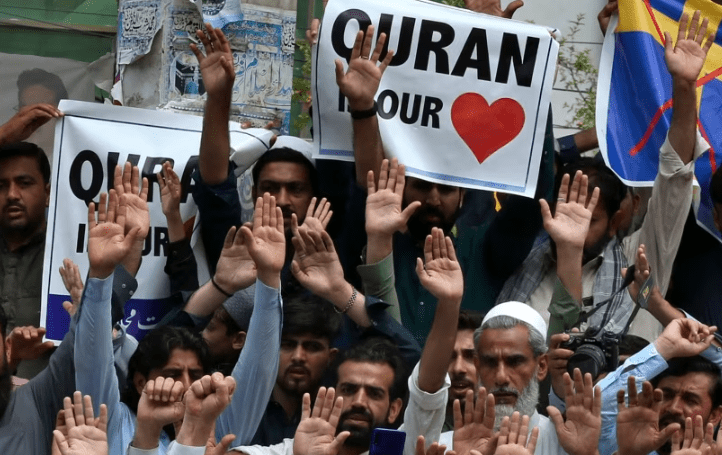
Dozens of countries, in a rare show of international unity, spoke out against the promotion of prejudice, hostility, and violence during a U.N. Human Rights Council discussion on the worrisome increase of religious intolerance.
The discussion began when an Iraqi immigrant burned a Quran on June 28 outside a mosque in Stockholm, Sweden. It was strongly denounced by Islamic and other countries throughout the globe since it occurred during the Muslim festival of Eid al-Adha.
“These and other incidents appear to have been manufactured to express contempt and inflame anger; to drive wedges between people; and to provoke transforming differences of perspective into hatred and, perhaps, violence,” said Volker Türk, U.N. high commissioner for human rights, who kicked off the debate with an impassioned plea to people of all beliefs to “act with respect for others.”
Only in this manner, he added, can human beings behave in a way that allows them to confront the difficulties humanity faces as a whole.
There are numerous obstacles, he said, and inflammatory discourse often sparks discriminatory acts of violence.
The United Nations high commissioner for human rights said that “in recent years, numerous acts of violence, terrorism, and mass atrocities have targeted people based on their religious beliefs, including inside their places of worship.”
He said that free speech was a basic human right and that restrictions on communication of any form should “remain an exception — particularly since laws limiting speech are often misused by those in power, including to stifle debate on critical issues.”
His call for individuals to watch their words was coupled with a call for all states to outlaw “advocacy of hatred that constitutes incitement to violence, discrimination, and hostility.”
For the Coordination Committee of Special Procedures, the special rapporteur on freedom of religion or belief, Nazila Ghanea, concurred that neither religion nor its adherents should be exploited to encourage hate and violence “for example for electoral purposes or political gains.”
She highlighted “some recent instances of the public burning of the holy Quran or desecration of worship” as examples of actions that try to purposely stir up hate or create pain and develop inter-religious and political conflicts.
She spoke out against “those who willfully exploit tensions or target individuals based on religion or belief,” expressing the position of the government.
Each of the almost eighty persons who took part in the discussion had the opportunity to speak, and their genuine indignation was on full show for the high commissioner and special rapporteur to draw into.
Pakistan asked on behalf of other OIC members for the discussion to be held, and it was held.
Foreign Minister Bilawal Bhutto Zardari of Pakistan delivered a video speech to the conference in which he denounced the “deliberate desecration of the holy Quran… which is a spiritual anchor for 2 billion Muslims.” It is intrinsic to who they are and how they feel about themselves.
He demanded justice, saying the vandals must be found and punished. He defended the First Amendment by saying that “free speech is as indispensable as hate speech should be indefensible.”
Retno L.P. Marsudi, the foreign minister of Indonesia, and other speakers reiterated these points. She spoke out vehemently against the Quran burnings that have taken place in certain nations, notably Sweden, saying, “These provocations deeply insult Muslims around the world.”
She went on to say that “freedom of expression does not mean freedom to discriminate and hurt others.”
U.S. Ambassador at Large for International Religious Freedom Rashad Hussein said that the United States is committed to fighting bigotry on the basis of religion or belief. To prevent hate speech, he said, governments shouldn’t try to stifle free speech, which he said “often serves as a catalyst for further hatred.”
To paraphrase what he said: “These real dynamics are also part of the reason why the United States strongly opposes blasphemy laws and other laws that purport to criminalize speech,” adding that “such laws also fail to address the underlying causes of bigotry.”
An proposed resolution to the council strongly criticizes “the recent public and premeditated acts of desecration of the Holy Quron” and demands that “those responsible be held to account.”
The resolution from September-October calls for an oral update from the High Commissioner “on the various drivers, root causes, and human rights impacts of religious hatred” that constitute incitement to discrimination, hostility, or violence.
Related








